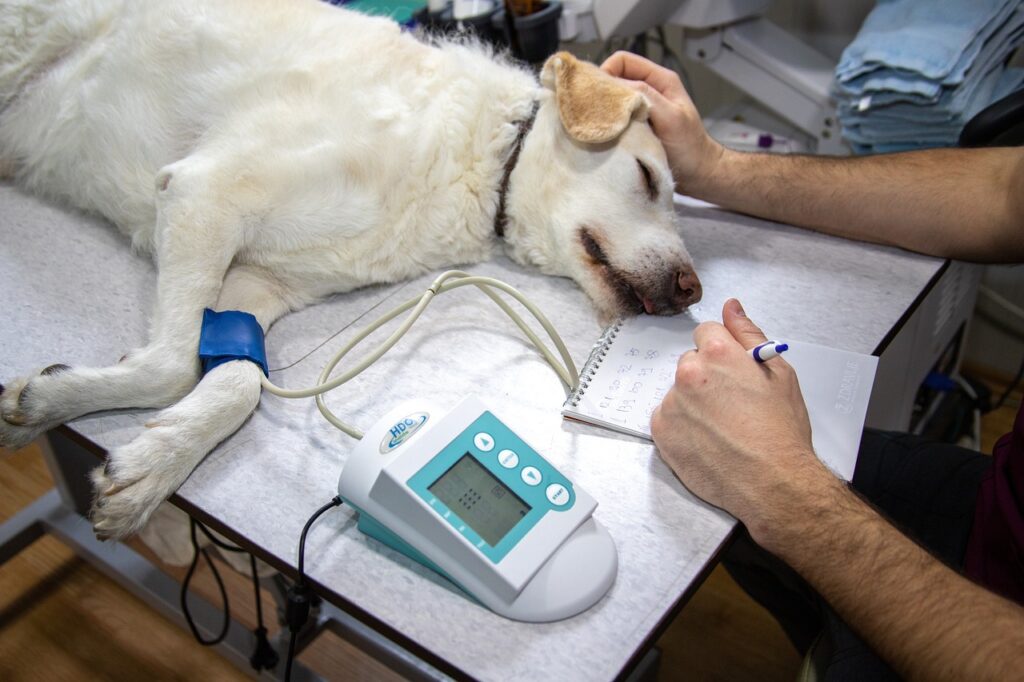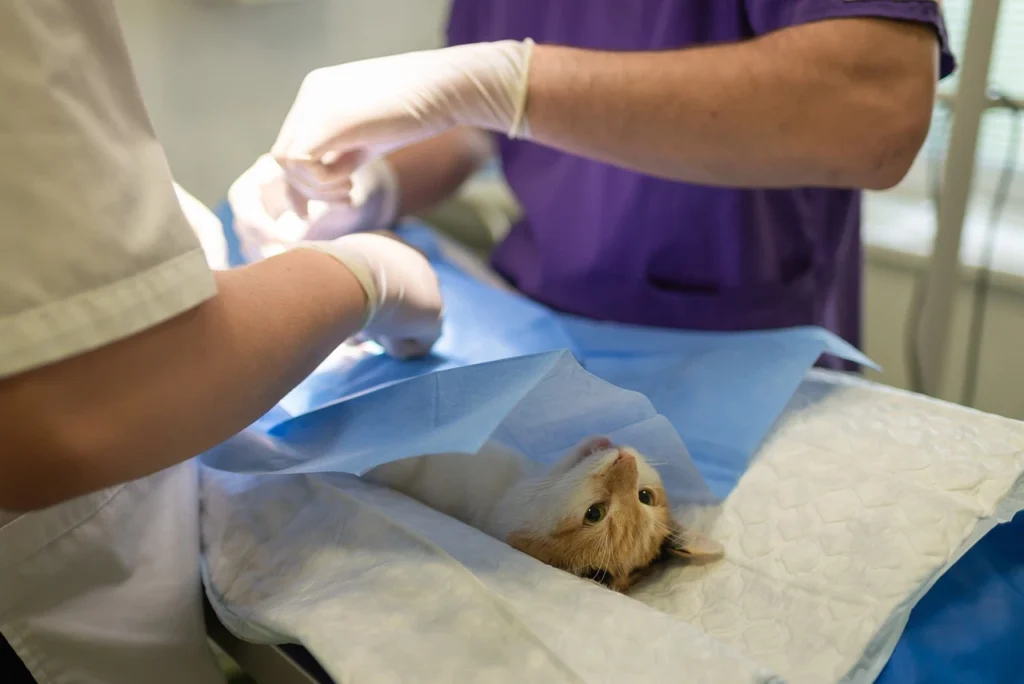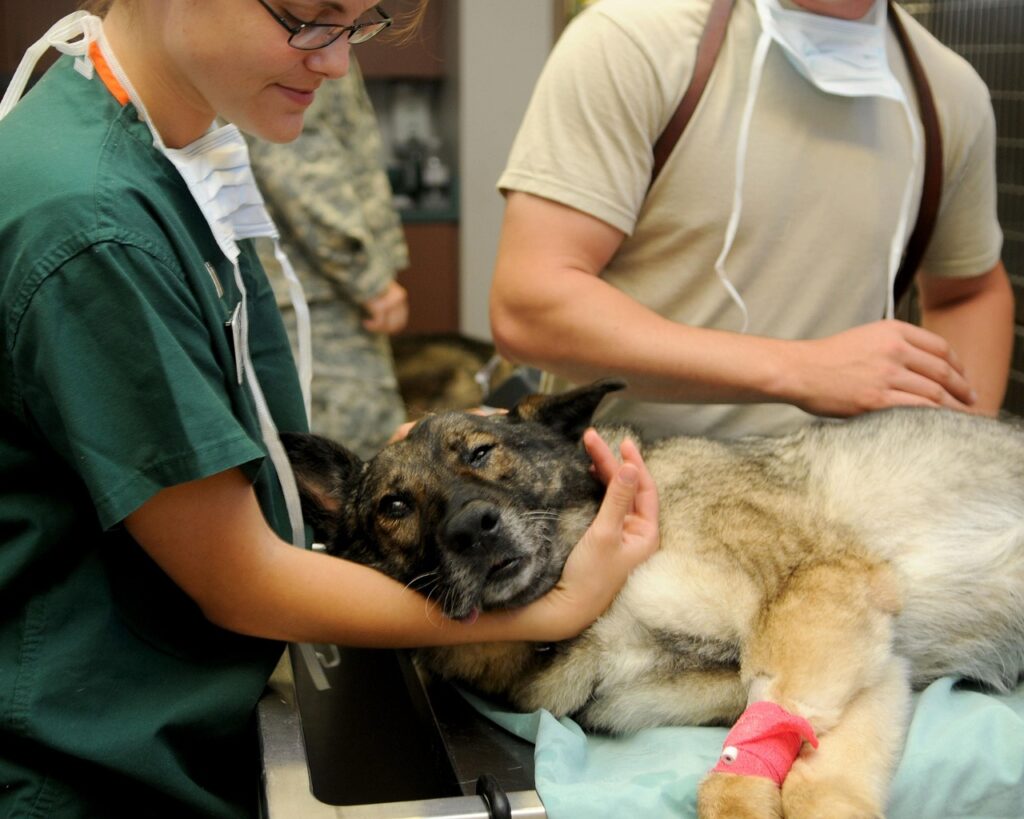Pet Urgent Care: Fast Help for Your Pet’s Emergencies

One of the most challenging moments for pet owners is when their furry friend suddenly becomes ill or injured. Medical attention can have a significant impact on the outcome of these situations if you know where to turn for immediate assistance. Pet urgent care services have become essential to the pet healthcare system, providing pet owners with a reliable option for non-life-threatening emergencies.
The vet’s office may be your first choice for routine checkups, but it may not always be the best choice in case of an emergency. A pet urgent care center is the best place to visit if your pet suffers an injury, a mild allergy reaction, or gastrointestinal upset.
The purpose of this article is to explain when and why pet urgent care is needed, how it works, and how to find the right clinic for your pet. This detailed guide will empower you to make informed decisions for your pet’s well-being in times of distress.
What Is Pet Urgent Care?
Pet urgent care is a specialized veterinary service designed to address non-life-threatening conditions requiring immediate medical attention. These centers focus on providing rapid care for injuries, illnesses, or symptoms that aren’t necessarily critical but still need quick intervention. Health centers that specialize in urgent care are more suitable for minor medical emergencies or health problems that require rapid attention.
Most pet owners are familiar with the basic functions of their vet’s office, which handles routine check-ups, vaccinations, and long-term health issues. However, emergencies can happen at any time. Pet urgent care centers are open outside of regular hours. They are ideal when your pet needs medical attention after hours or when your vet is unavailable.

When Should You Use Pet Urgent Care?
Understanding when to seek urgent pet care is essential for every pet owner. Urgent care is designed for minor emergencies requiring prompt attention but not life-threatening. Situations such as vomiting, diarrheic, minor wounds, allergic reactions, or sudden limping may warrant urgent care. Additionally, if your pet ingests a non-toxic foreign object, has mild respiratory distress, or experiences changes in appetite or behavior, seeking urgent care can help prevent complications. However, severe conditions like difficulty breathing, seizures, severe trauma, or uncontrolled bleeding require immediate emergency care. Always monitor your pet’s symptoms and consult a veterinarian if unsure. Acting quickly can significantly impact your pet’s health and recovery. Here are a few scenarios where you may want to consider visiting a pet urgent care center:
Minor Injuries
Whether your pet has cut its paw on a sharp object or sprained its ankle while playing, minor injuries are common in pets. While not immediately life-threatening, they still require prompt medical attention. In these cases, pet urgent care can treat wounds, administer stitches, or help manage pain effectively. A quick visit to an urgent care facility can prevent the injury from becoming infected or worsening.
Gastrointestinal Issues
Vomiting, diarrheic, or constipation in pets can occur suddenly and often lead to dehydration if not treated. While some stomach issues may resolve independently, monitoring your pet’s condition is essential. Suppose symptoms persist for more than 24 hours. In that case, urgent care can help identify the cause, such as a bacterial infection, ingesting harmful substances, or food allergies.
Allergic Reactions
Like humans, pets can experience allergic reactions to food, insect bites, or environmental factors. If your pet shows signs of swelling, hives, or excessive itching, it’s essential to seek medical care immediately. An allergic reaction, even if mild, can escalate quickly, causing breathing difficulties or anaphylaxis. A pet urgent care clinic can provide antihistamines or steroids to ease the symptoms.
Urinary Tract Infections (UTIs)
Urinary tract infections (UTIs) are not uncommon in pets, especially in cats and older dogs. Suppose your pet has difficulty urinating or straining or has blood in the urine. In that case, it’s important to address the issue immediately. Left untreated, UTIs can lead to more severe infections or kidney damage. Pet urgent care centers can perform a quick urinalysis and prescribe antibiotics to treat the infection.
Respiratory Issues
Pets may experience mild respiratory distress due to allergies, upper respiratory infections, or asthma. Suppose your pet is coughing, sneezing, or having trouble breathing. In that case, it’s a good idea to seek urgent care, especially if these symptoms persist for more than a few hours. Pet urgent care can perform diagnostic tests like X-rays or blood work to determine the cause of the symptoms and provide appropriate treatment.
Pet Urgent Care vs. Emergency Care: What’s the Difference?
Pet owners must understand the key differences between pet urgent care and emergency care to ensure their pets receive the right treatment at the right time. While both services provide immediate medical attention, they cater to different levels of severity.
Urgent care is designed for non-life-threatening conditions that still require prompt attention. Examples include minor wounds, ear infections, mild allergic reactions, vomiting, diarrhea, or minor lameness. These cases are serious but not critical, meaning they can be addressed without intensive emergency intervention.
Emergency care, on the other hand, is for life-threatening conditions that require immediate and specialized medical attention. This includes severe trauma (such as being hit by a car), difficulty breathing, seizures, poisoning, deep wounds, or sudden collapse. Emergencies often demand advanced diagnostic tools, surgery, or intensive monitoring to stabilize the pet.
Knowing when to seek urgent care versus emergency care can save valuable time and potentially your pet’s life. It’s always best to call a veterinarian or an emergency pet hospital for guidance if unsure. Having a clear plan, including knowing the location of the nearest pet urgent care and emergency clinic, ensures your pet gets the best possible care when needed.
Pet Urgent Care
- Focus: Non-life-threatening conditions that require immediate attention.
- Conditions Treated: Minor injuries, mild allergic reactions, gastrointestinal problems, infections, mild respiratory issues.
- Timing: Ideal for situations that cannot wait for a regular vet appointment but do not require emergency intervention.
- Services: Walk-in visits, basic diagnostics, wound care, antibiotics, pain management.
Emergency Care
- Focus: Life-threatening conditions that need immediate, critical care.
- Conditions Treated: Severe trauma, poisoning, respiratory failure, major bleeding, heatstroke, cardiac arrest.
- Timing: Immediate, 24/7 care.
- Services: Critical care, advanced diagnostics (e.g., CT scans, intensive care units), emergency surgery, and life-saving treatments.
How Does Pet Urgent Care Work?
When your pet faces a minor health issue that needs quick attention, visiting a pet urgent care facility is often the best choice. Here’s an overview of what you can expect during a visit:
Walk-In Service
Most pet urgent care clinics accept walk-ins, meaning you don’t need an appointment to be seen. This is especially important during emergencies when you need immediate care for your pet.
Initial Triage
Upon arrival, your pet will be assessed by a trained technician or veterinarian to determine the situation’s urgency. Your pet may be triaged to a nearby emergency care center for more advanced treatment if it is in severe distress. Otherwise, your pet will receive treatment based on the severity of its condition.
Diagnostics and Treatment
Urgent care clinics are equipped to diagnose common conditions that require immediate treatment. This may involve blood tests, X-rays, or ultrasounds to determine the root cause of the symptoms. Once the diagnosis is confirmed, the veterinary team will initiate appropriate treatment, including administering medication, bandaging wounds, or providing hydration therapy.
Referral to Emergency Care
Urgent care centers may refer your pet to an emergency facility for more advanced care if the condition is more severe than initially assessed. This ensures your pet gets the best treatment, no matter how serious the condition.

Benefits of Pet Urgent Care
Opting for pet urgent care services offers several advantages:
1. Convenience and Accessibility
Pet urgent care centers are typically open outside regular business hours, making them an excellent choice for after-hours emergencies. They often operate late at night, on weekends, and during holidays, allowing you to get your pet treated when your primary vet’s office is closed.
2. Cost-Effective
Urgent care visits are often more affordable than emergencies, especially if your pet’s condition is not life-threatening. Although the costs vary, urgent care provides a more economical solution for non-critical health concerns.
3. Quick Service
Urgent care facilities are designed to handle minor emergencies swiftly. They are staffed with veterinarians and technicians trained to assess and treat issues quickly, allowing you to get in and out without the extended wait times that can be found in emergency care centers.
4. Peace of Mind
Access to a reliable pet urgent care facility gives you peace of mind. You know your pet’s health can be addressed promptly, even when your primary vet isn’t available.
How to Choose the Right Pet Urgent Care Center
When selecting a pet urgent care clinic, there are several factors to consider to ensure you are making the best choice for your pet:
Location
The location of the urgent care facility is critical, especially in emergencies. Choose a clinic close to your home to minimize travel time and ensure you can get there quickly if something happens.
Operating Hours
Not all urgent care centers operate 24/7, so it’s important to know when the facility is open. Look for one that offers extended hours or weekend availability to ensure it’s accessible when you need it most.
Reputation
Before choosing an urgent care clinic, read reviews or ask for recommendations from other pet owners. It’s essential to know that the facility has a good reputation and is trusted by other pet parents.
Staff Qualifications
Ensure that the clinic employs licensed veterinarians and experienced staff members equipped to handle urgent situations. Check if the facility has the necessary equipment to diagnose and treat various conditions quickly.
Services Provided
Make sure the clinic offers a broad range of services for emergencies. For instance, some urgent care centers may specialize in specific types of treatment, such as wound care or gastrointestinal problems. In contrast, others may offer more comprehensive care.

Conclusion
Pet urgent care centers bridge the gap between regular veterinary visits and emergency clinics, offering immediate medical attention for non-life-threatening conditions. These facilities are ideal for treating minor wounds, vomiting, diarrhea, ear infections, or mild allergic reactions that require prompt care but are not severe enough for an emergency hospital visit. They provide a cost-effective alternative to emergency rooms, with shorter wait times and extended hours, making them convenient for pet owners needing after-hours care.
When selecting a pet urgent care center, consider factors such as location, operating hours, available services, and customer reviews to ensure the best care for your pet. It’s also helpful to call ahead to confirm that the facility can handle your pet’s specific condition. By understanding how urgent care works, you can make informed decisions prioritizing your pet’s health and well-being, ensuring they receive the right care at the right time.
FAQs
1. What should I bring to a pet urgent care visit?
When you visit a pet urgent care clinic, it’s helpful to bring any medical records for your pet, such as vaccination history or previous health issues. This can help the veterinary staff make informed decisions about your pet’s treatment.
2. Can pet urgent care treat severe injuries?
No, pet urgent care is not meant for critical, life-threatening injuries. For severe trauma, poisoning, or life-threatening conditions, visit an emergency vet clinic immediately.
3. How do I know if my pet’s condition is an emergency?
If your pet is in severe pain, bleeding heavily, having trouble breathing, or experiencing seizures, go straight to an emergency care center. An urgent care center is right for less severe but urgent conditions.
4. Are pet urgent care services covered by insurance?
Many pet insurance policies cover urgent care services, but coverage may vary depending on the provider and plan. Contact your insurance provider to check if urgent care visits are covered under your plan.
5. How long does a visit to pet urgent care take?
Most visits to pet urgent care centers are relatively quick, especially if the issue is straightforward. However, the time can vary depending on the complexity of the condition and the need for diagnostic tests.
















Recent Comments